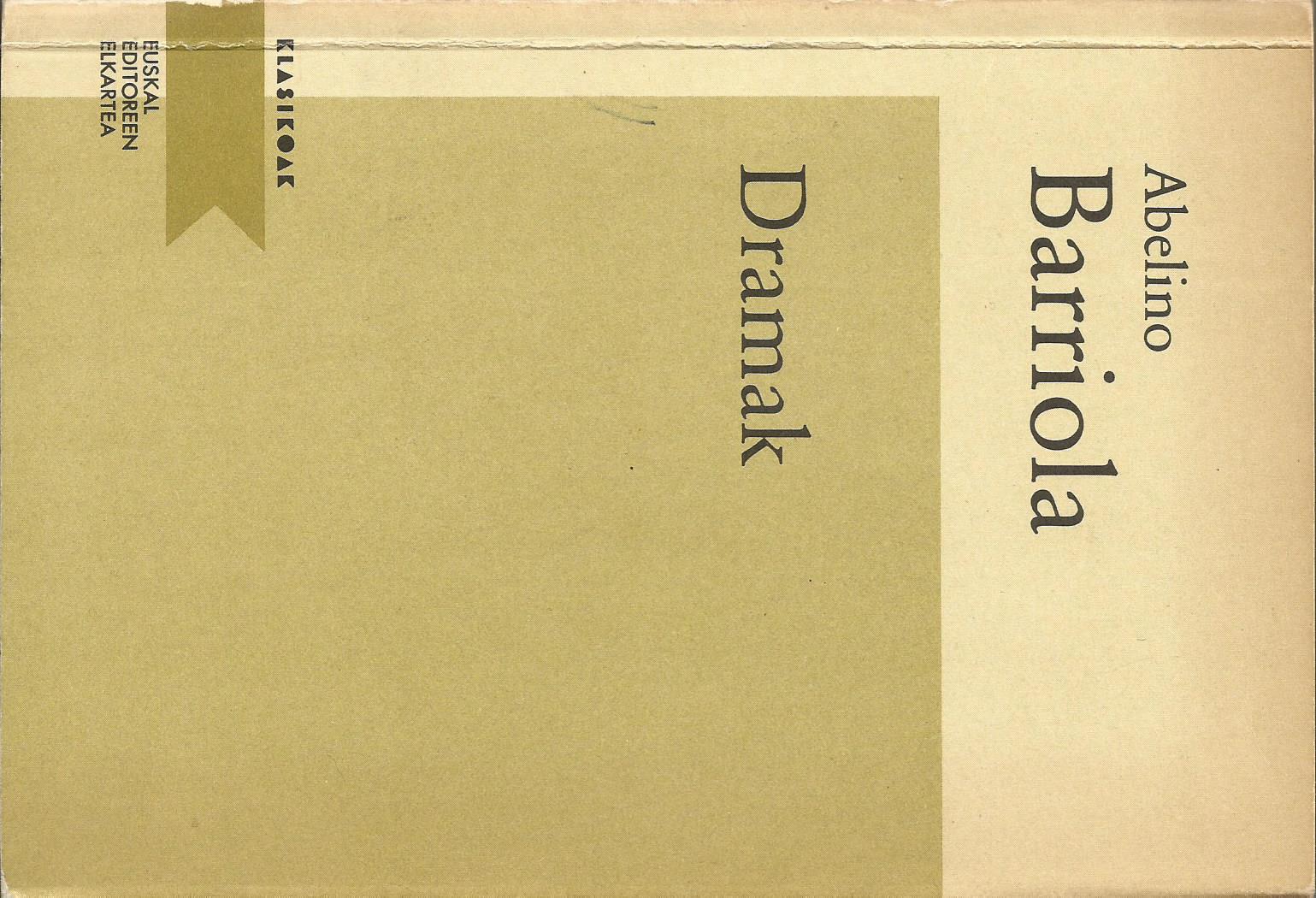

In the pre-war theater of 1936, a name stood out: Abelino Barriola. Not the only one, of course, was Toribio Alzaga, to whom Barriola himself acknowledged the magisterium – “I have been fond of you for the themes of Euskaldun-antzerti” –. But Barriola, according to Lino Akesolo: “With the good writers the Euskal-theatre is going to try to open a new path. Even higher issues, at the level of new societies.” The progressive, more adapted to the time, “diverts the deepest problems of society”, “the theater of San Sebastian refers to that I left the atmosphere of the Joxemaritaritarras and took me to the wider world and to new knives”.
Apart from the comedy, the book covers the four dramas of Barriola (Zulo Madarikatuak, 1911; Lagun txar bat, 1912; Maiteriak, 1923; Goiko argi, 1935). Besides being the gender with which the best results are obtained in general, “they constitute a good sample of the changes that have occurred over time”. Xabier Mendiguren explains clearly in the introduction: from the theater of laughter to drama, ever-longer plays, highlighting the ideology, from the people to the city, the growing social level in the character, the importance and the value of women. “Although in their first works they fully adhere to the Donostia theatrical tradition from Soroa, little by little they will get a special and their own theater.”
What is that way of making theater? Not only empty, empty actions, but ruminants – monologues, inner thoughts – for example, by faith. There are ungodly characters that call the nuns “vagos”, “bugs”. The priest is in favour of relations between men and women – as they have men among themselves and women in theirs. Suicide occurs. Aware of the excesses of the elderly, a little class. An Andalusian woman, the wife of a German engineer who travels to Biarritz with three Basque boys, also danced with the black man that the liberated woman plays the jazband, the jazband. Or the debate that polymericity may suggest: “Are you the heart that fulfills one love? Love! I have many.”
All in all, there is a moralizing intention behind them, and the ideology – abertzale, jelkide – has deep roots in these texts. But if it's nothing more than to show what you don't have to do, as those censoring texts did, they teach us what you can do. What was being done in those new societies.